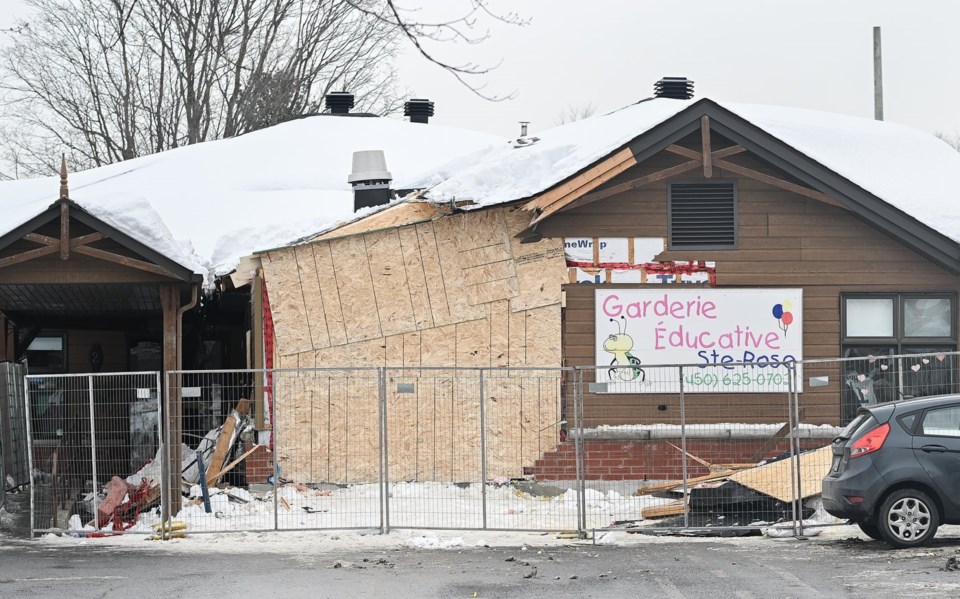Martin Lewis is urging anyone with a home insurance renewal due to be aware of a key trend, and check their prices carefully. New analysis shows home insurance prices - buildings and contents - have dropped month-on-month this year. But, as the Money Saving Expert founder says: "That's good news, but it does risk people being complacent at renewal, as if the quote's only a little more than last year, you may settle for it, whereas in fact far cheaper may be available - similar is true with car insurance So here are some quick need-to-knows.
.. Home insurance prices are starting to drop "Don't simply accept their renewal price, aim for cheaper," he says.

"Our Compare+ tool & its unique Price Impact Indicator finds your cheapest insurers, then shows how to cut the cost even more." One interesting point is around locks, and the questions that come with a baffling array of options. According to his Money Saving Expert newsletter : "When asked what locks you have, you'd probably assume better locks cut the cost of cover.
Yet the data surprisingly shows it has an almost negligible impact on price. Which is why every question in the Compare+ tool has a 'low', 'mid' or 'high' label, telling you whether - and by how much - the answer impacts the price of your cover. You can click each label to read the full info.
" The car insurance world is changing and you need to be prepared. Prices have dropped 16% this year, but that doesn't mean do nothing, the opposite in fact. Do have a listen.
...
https://t.co/DbRuOfEhHb — Martin Lewis (@MartinSLewis) February 6, 2025 The best advice is to be honest, and err on the side of caution. Locksmith Craig Andres from The Perspicacity Life warns that saying your lock is more secure than it is can impact home insurance claims.
"A weak lock doesn’t just put your property at risk, it could also invalidate your home insurance," he says. "Some insurance providers require specific security standards, and if your locks don’t meet these requirements, any claim after a burglary could be rejected. "Many insurance companies specify TS007 3-star locks or a combination of a 1-star lock and a 2-star door handle as a minimum requirement.
If your home doesn’t comply, you might not even realise that your insurance policy is invalid.” The best bet is to be completely honest - it may not increase your premium price much and you know you're covered if you need to claim. A Martin Lewis tip that could save 25% on your insurance renewal price Another Money Saving Expert tip is to time your quote carefully: "While it sounds crackers, how early before renewal you get a policy can have an up to 25% impact on what you're charged (we get this info from analysing up to 650,000 quotes)," the website says.
"So the tool will tell you when to come back if you're too early (don't worry, you can save info so you needn't re-enter it), and if you're too late, we've calendar reminders so you time it right next year." Some other tips include: Will upping the voluntary excess (the amount you pay towards a claim) save you money? Can you pay annually rather than monthly? Can you save by combining your home and car insurance? If you want to stick with your existing insurer..
. benchmark the cheapest and haggle. Can you get cashback on the policy to lower the cost? What's the difference between buildings and contents insurance? As a rule of thumb, if you you turned your home upside down, everything that'd stay is usually covered by buildings insurance; everything that'd fall is usually covered by contents insurance.
Alex Cross, Chief Customer Officer at Tesco Insurance , says: "For complete protection, it's best to take out both buildings and contents insurance. Buildings insurance covers the structure of your home, including walls, roof, and fixtures, while contents insurance protects your belongings, from furniture to electronics. "If you have a mortgage, your lender will likely require buildings insurance, but combining both policies ensures you're fully covered against unexpected damage or loss.
" Things you need to notify your home insurance provider of (or risk invalidating your policy). Alex Cross suggests this checklist of things you should tell your insurer about (as with most things, it's better safe than sorry). Change of name and/or address Change of occupation Any building work or renovations within the boundary of your home Your home being unoccupied or unfurnished for more than 30 days Planning to rent your home or part of your home your property is no longer solely owned by you or your family additions to Increases in the value of, your contents, valuables, or jewellery Starting to use the home for business use, excluding child minding, clerical or administrative work with no employees Unspent criminal convictions and/or bankruptcy Any loss or incident that may cause a claim, even if you're not claiming Can building work invalidate your home insurance policy? Yes.
This is a key area many people forget to tell their insurer about. Johnny Thomson, marketing and communications director at RebuildCostASSESSMENT.com explains: “The rebuild cost is a critical aspect of property insurance, impacting your coverage and payout should the worst happen to your property.
If you renovate your home, then your rebuild cost may change. You’re likely adding or altering something about the property that affects the cost of rebuilding it from scratch. “Many may think their property insurance is only impacted by large structural changes like an extension or conversion, but that’s not always the case.
Upgrades like a new kitchen or bathroom can impact this, too. Even smaller changes, including adding a marble countertop or installing underfloor heating, could increase the rebuild cost. “If your home insurance isn’t updated to reflect changes, you could find yourself underinsured.
If the worst happens and you’re underinsured, your current insurance payout may only cover the original property. This will leave you out of pocket for the additional costs that should’ve been adjusted to reflect the renovations.” How about getting insurance for unusual properties or period homes? Homeowners living in period homes, typically defined as properties built before the First World War, are paying 123% more in annual insurance premiums than they would for a contemporary home built after the year 2000, says research from Compare the Market .
On average, home insurance for a period home costs £547 per year, £245 more than the average premium for a home built after 2000 which cost £302. Recommended reading: Martin Lewis: Biggest factor to change mortgage rates DWP State Pension age will have to rise to 71 says report Martin Lewis: Financial warning to mobile phone users The most expensive category of period homes to insure are Tudor homes, built between 1485 and 1603, which cost £770 on average. These are followed by homes built during the Stuart period, 1603 to 1714, costing £700 on average.
The average cost of insurance for Georgian-era homes, built in the period from 1714 to 1830, is £551 while homes built in the period from 1831 to 1836 cost £522. Insurance for homes built before 1485 comes to £487, £397 for Edwardian homes, built between 1901 and 1910, and £395 for Victorian homes, built in the period from 1837 to 1901. Contemporary homes, built from 2000 onwards, cost on average £302 to insure per year.
Helen Phipps, home insurance expert at Compare the Market, says: “While period homes often possess great character and charm, our research underlines the importance for homeowners to be aware of the additional costs that can often accompany owning an older property. "People living in a period home, or those considering purchasing one, should be aware of the potentially higher insurance premiums that typically come with owning an older property. “It’s important for all homeowners to compare insurance policies of different providers online to help find the right deal at the right price.
”.
Health

Home insurance prices are dropping - but Martin Lewis says we should be careful

Martin Lewis has issued three need-to-knows for anyone with a home insurance renewal due, for buildings or contents.















